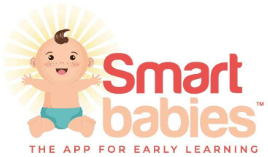 By Dr. S. H. Jacob
By Dr. S. H. Jacob
www.shjacob.io
Author, Your Baby’s Brain, Intellect, and Yo
Content Writer, SmartBabies App
S. H. Jacob, a Ph.D. in human learning and cognition from the University of Minnesota in Minneapolis and a renowned author in cognitive development, describes the importance of the initial baby brain and cognitive development in Your Baby’s Brain, Intellect, and You. The valuable book discusses the significance of the first two years, the role of activity (play) as the foundation of intelligence and knowledge, and the importance of parents and other primary caregivers in the developmental process of an infant.
Unsurprisingly, your baby’s first two years are filled with delight and stress. There is much to learn about providing the best care for your infant. While many parents succeed in delivering the best care to their newborns, many need clarification about what needs to be done to ensure a perfectly healthy and active grown-up.
Don’t worry; we’ve included suggestions to help you be the best parent or caregiver by promoting your child’s growth and development during their initial years. Just follow this article to the end to learn more!
Be ready for the upcoming: The first and foremost thing to be a good parent is to understand that life will not be the same. You might expect happiness, sleepless nights, stress, constant fatigue, mood swings, and whatnot. Being a parent is a challenge, and your precious addition to the family can give you nightmares and sweet dreams simultaneously. Therefore, you need to understand and rely on your gut. Don’t be concerned if you initially feel as if you know nothing. It’s normal to feel this way, but as you flex your parenting muscles, your parenting skills will improve, and your confidence will develop over time. Reading Your Baby’s Brain, Intellect, and You can also get some assistance. It can help you understand and implement many parenting techniques for raising a healthy and active baby.
Play: Your newborn will learn a lot during their first month of life just from interacting with you daily. The best news is that you can start playing with your baby whenever you want; the earlier, the better. There’s no need to stress over scheduling activities with your infant at a specific time. They will learn something new or different every time you interact with them. Check out Dr. S. H. Jacob’s book to discover how to set up your newborn’s crib, and what kind of bed sheets, crib bumper, overhead mobile, etc. are best!
Talk to your baby: You might not know, but your newborn already knows your voice and can tell the difference between your voice and others. Your baby will find your voice calming. So talk and sing to your baby. Embrace your baby’s sounds and smiles with enthusiasm. Tell your newborn what you are doing and what they are looking at or doing. It will greatly help them harness their cognitive development from an early age.
Give your baby love: Hugs and kisses, as well as other physical displays of affection, increase the number of growth hormones in the newborn, ensuring full development throughout childhood. It is essential to provide an immense amount of love to your child. Therefore, do not hesitate to kiss, hug, and cuddle up with your child too often to make them feel safe and loved throughout their development. You can also massage your baby for a few minutes daily.
Keep an eye on yourself: Parents need quality time after an exhausting day of baby care to avoid parental burnout. Therefore, pay attention to your well-being. Take some “me time” for self-care and focus on yourself for a healthy self and well-being. Sleep, eat, practice healthy habits, and think positively to give your baby the best.
Ask for help: Even the most prepared parents often become completely stressed in their parenting journey. That is why there is no shame in seeking help. Don’t be afraid to turn to your pediatrician, family, and friends. You can also get some precious guidance from parenting books. When it comes to your baby’s cognitive development, follow the specific suggestions outlined in Dr. S. H. Jacob’s excellent book, Your Baby’s Brain, Intellect, and You.




